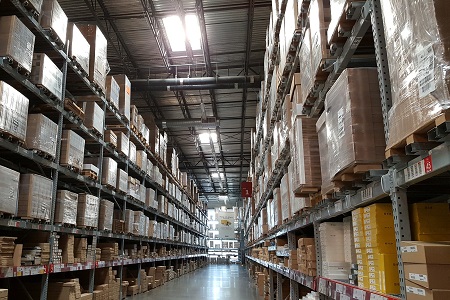Recent figures have shown that job vacancies have risen to their highest level in 20 years. During August, 1.1 million job vacancies were unfilled in the UK. Alongside this, we have specifically seen labour shortages across the logistics and supply chain sectors steal headlines. Aside from the HGV driver shortage, the NHS and care industry is up against it – and has, in many respects, felt the pinch the whole way through the Covid-19 pandemic. With the NHS and care industry under pressure, many nurses are increasingly giving up their jobs to work for Amazon as warehouse workers.
As Kathryn Singh, Chief Executive of Rotherham Doncaster and South Humber NHS Foundation Trust (RDaSH) puts it, the service is, “Competing against the likes of Amazon and others.”
Yet, what do these trends, changes and challenges taking place highlight to us all? The problems that industry is facing go deeper than one might think. More importantly, they are global. Axel Schmidt, Senior Communications Manager, ProGlove explains.
Let’s face it: are these labour problems really a surprise though? As the Guardian also reports, more and more caregivers in the United Kingdom are quitting their jobs. The reason seems obvious: Amazon is luring them with significantly better pay. There is talk of up to 30% more in the pay packet. What is more, Amazon is offering potential new hires a £3000 joining bonus to help it avoid labour shortages ahead of Christmas. Who can say no to that? However, this approach only partially addresses the core problem for Amazon and the supply chain sector.
When reading the Guardian’s article, it is easy to read between the lines about the consequence of one sector poaching employees from another through using a creative, financially incentivised recruitment strategy. But, surely this cannot be the whole story? After all, despite the lucrative signing-on fee that is currently dangled in front of potential employees, Amazon has traditionally been seen among the public for offering undesirable fulfilment-related jobs. Are we now, all, really, to believe that the e-commerce giant is suddenly a dream employer for the masses? Surely, there has got to be more to this story?
That being said, it is worth noting that many workers across several sectors feared for their jobs during the initial phase of the pandemic too. This is true of the hospitality and events industries. Many employees here were made painfully aware: no business, no job. So, Amazon’s offer of employment to these employees seems to make more sense in comparison with nursing and healthcare. So, why are so many in the care sector quitting their jobs?
In a world dominated by science and technological advancements, it is easy to forget that the supply chains of the global economy demands and depends on human employees. Through the pandemic – especially during e-commerce – we have all been reminded of this fact. So, as the NHS and care sector, and the supply chain and logistics sector all grapple for employees, one thing is for certain: Appreciating employees properly in the short- and long-term is key. And, maybe Amazon is doing better in that regard that many may think.
This means providing staff with the right levels of remuneration, the right tools and technology to work – and to support them with their career development. Organisations willing to address these points stand a stronger chance of attracting and retaining staff. Which is crucial in the run up to winter for the NHS and Christmas for the wider supply chain industry.
To read more exclusive features and latest news please see our February issue here.
Media contact
Rebecca Morpeth Spayne,
Editor, International Trade Magazine
Tel: +44 (0) 1622 823 922
Email: editor@intrademagazine.com








